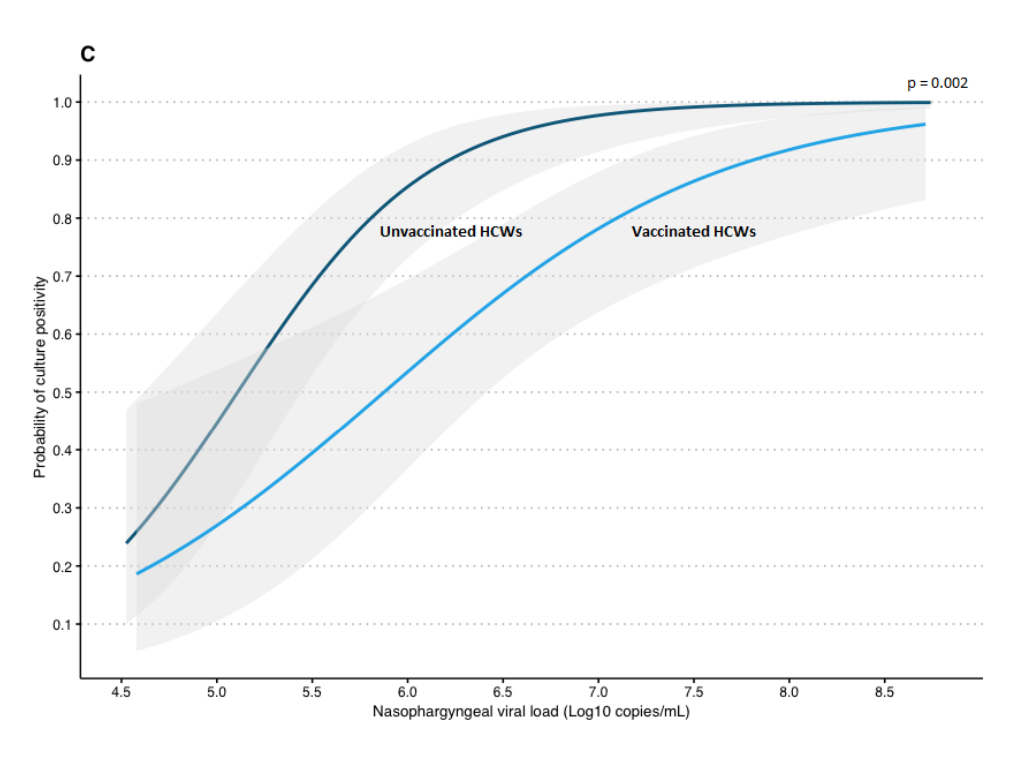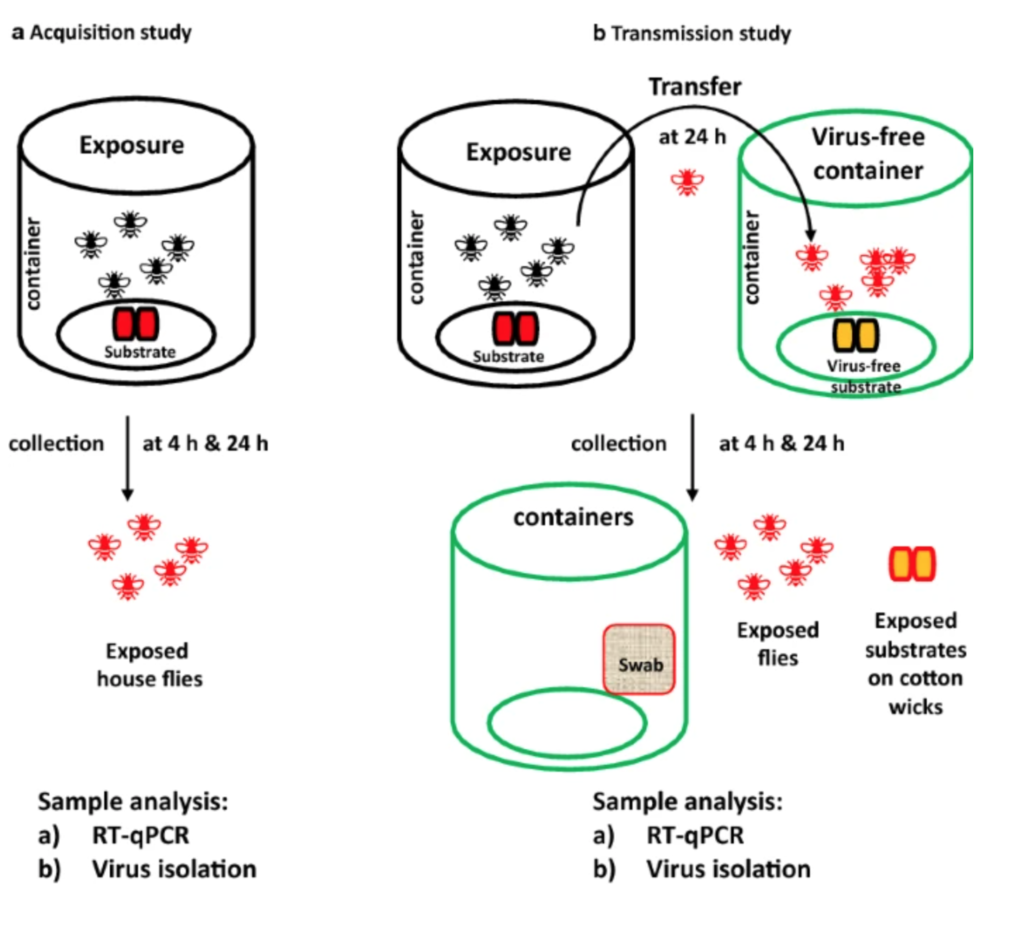Transmission
This great preprint of healthcare workers in the Netherlands finds that despite having similar PCR results for vaccinated and unvaccinated people, vaccinated people actually are less likely to have actual infectious viruses.
PCR tests look for pieces of RNA, but the RNA might be fragments, it’s not necessarily whole virus which can cause infection. This study took the nose-gunk from people who tested positive, tried to grow it, and found that it was a lot harder to grow nose-gunk from vaccinated people than unvaccinated people. They used the ability to grow nose-gunk as a proxy for whether there was an actual infection or not.
This graph shows how likely they were able to grow nose-gunk on the y-axis, vs. the viral load as measured by a PCR test on the x-axis.

The graph is even better than it looks. Because so many healthcare workers were vaccinated, they couldn’t find enough healthcare workers who were unvaccinated, so they used swabs from a year ago to grow the “unvaccinated” cultures, which would have been COVID Classic. Delta ought to be a lot easier to culture because it is about twice as infectious.
(Note that growing cultures is slow and laborious and has to be done in a biosafety level 3 lab, which is why people use PCR tests instead.)
Ew. This preprint says that houseflies can harbour SARS-CoV-2 and transmit it mechanically from spiked milk or growth medium.

They were able to detect RNA but were not able to culture actual virus, however, which suggests that the amount of virus is too low to be useful.
It’s also not clear to me that houseflies would be attracted enough to snot rags to want to hang out there and pick up the virus.
Treatments
I try to wait until something has happened before mentioning it, but this article has really promising news: Pfizer has developed a oral treatment for all coronaviruses — SARS-CoV-2, SARSCoV-1, HKU1, OC43, MERS, 229E, and NL63 — which looks really really good. It is very effective in test tubes and mice with human immune systems, and has really good safety data in rats and monkeys, and in a very limited human safety trial.
They started working on this for SARS, and it targets a piece of the coronavirus machinery that is common to all coronaviruses, so this should work against a bunch of common colds as well.
This preprint says that monoclonal antibodies still work well against the variants.
This preprint says that putting COVID-19 patients who need oxygen on their stomachs is better than not doing so.
Vaccines
This article discusses all of the different medical reasons why someone could not get a vaccine. Spoiler: there are none.
Even people who have allergies can get vaccinated. They have to be monitored carefully, but they can. (The article doesn’t say so, but I believe taking Benadryl or some other antihistamine can reduce or eliminate the problems.)
People who are immunocompromised in one way or another are less likely for the vaccine to be useful, but that doesn’t mean they can’t get a vax. In some cases, they do mount a good response with a third dose.
This preprint says that antibody levels in the blood go down over time, and go down more in people who were vaccinated than in people who recovered from a bout of COVID-19.
Recommended Reading
This article gives reassurances about breakthrough infections.
This article talks about functional neurological disorder, which can happen after vaccination but is not due to vaccination per se — anything stressful can trigger it, even a sprained ankle.
